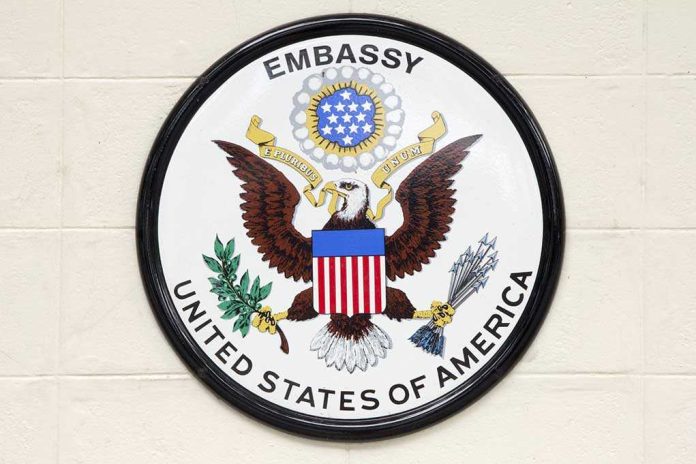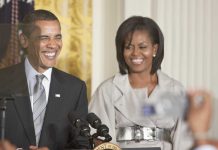
When a US embassy tells its own citizens to avoid every American facility in a friendly Caribbean nation during a beloved festival, something far darker than diplomatic caution is underway.
Story Snapshot
- The US Embassy in Trinidad and Tobago issued a rare, sweeping warning to Americans following deadly US military strikes nearby.
- Tensions with Venezuela are escalating, placing American citizens and local communities at heightened risk.
- Local fishermen have disappeared after US actions, sparking unrest on the eve of the Diwali holiday.
- The warning signals deeper regional instability and a new phase in US-Caribbean relations.
US Warning Signals an Unprecedented Shift
October 18, 2025, delivered a jolt to Americans living or working in Trinidad and Tobago: the US Embassy told them to avoid all US government facilities, citing a “heightened state of alert.” For seasoned observers, this wasn’t business as usual. Such broad warnings are almost unheard of outside of imminent terrorist attacks or civil unrest. The backstory? A deadly series of US military strikes just offshore—ostensibly targeting drug traffickers, but leaving at least 29 dead since September and two local fishermen missing after an October 14 incident near Trinidad. The message was clear: Americans, even in peaceful places, are now potential targets.
Long accustomed to being a safe haven for US citizens, Trinidad and Tobago suddenly became a flashpoint. The embassy’s alert, coinciding with the Diwali holiday—a time of vibrant public celebration—left local authorities scrambling. Homeland Security Minister Roger Alexander confirmed the threat was specific to Americans and likely tied to the fallout from US military actions. For Trinidadians, especially those in coastal communities, the stakes felt personal: missing fishermen, disrupted festivities, and a gnawing fear that local safety had become collateral damage in a bigger geopolitical contest.
Geopolitical Tensions Erupt Close to Home
Trinidad and Tobago’s proximity to Venezuela—just a few miles of Caribbean water—has always been both an asset and a vulnerability. The two nations share trade, migration, and an occasionally tense maritime border. But with the US and Venezuela’s antagonism at a boil, the island finds itself wedged between clashing powers. This time, the catalyst was a series of US anti-narcotics strikes in regional waters. Venezuela’s government, no stranger to accusing the US of overreach, denounced the operations as violations of sovereignty. As US forces detained survivors and local authorities investigated missing fishermen, Trinidad was forced into a delicate diplomatic dance, trying to appease American demands for security while calming its own restless citizens.
Local communities, especially those dependent on fishing, have felt the brunt. The October 14 disappearance of two fishermen—immediately following a US strike—sparked outrage and suspicion. Was the US military acting on faulty intelligence? Did the regional drug war just claim innocent lives? For Trinidadians, these questions are more than academic. Security presence surged, public anxiety soared, and the Diwali holiday became a test of nerves rather than a celebration of light.
Security, Sovereignty, and the American Presence
The US government’s primary concern is clear: protect its citizens and assets. But the new warning reflects a recognition that American presence, even in friendly countries, now carries unique risks. Previous advisories for Trinidad and Tobago focused on local crime, gang activity, and sporadic terrorism. Linking a security alert directly to US military operations and regional politics is a major escalation. For embassy staff, American businesspeople, and tourists, daily routines turned into exercises in caution. Trinidad’s government, meanwhile, stepped up patrols and tried to reassure both locals and the international community that order would prevail.
Behind the scenes, the power dynamics are stark. The US wields overwhelming military and diplomatic leverage, but is discovering the limits of that power when civilian casualties and diplomatic backlash mount. Trinidad and Tobago, a small but strategically placed state, must navigate between appeasing its American allies and avoiding provocation of its Venezuelan neighbor. Venezuela, for its part, sees opportunity in the chaos, using every incident to bolster its anti-US narrative and regional influence. For local families, especially those who lost loved ones or now fear for their livelihoods, these geopolitical calculations offer little comfort.
Unanswered Questions and Unsettled Futures
The embassy’s warning remains in force as the Diwali holiday passes, and heightened security is the new normal. Official sources remain tight-lipped about the precise nature of the threats, fueling speculation and unease. Investigations into the fishermen’s disappearance are ongoing, but answers are slow to surface. For now, the incident has cast a long shadow over US-Trinidad relations and set a precedent for how quickly seemingly stable environments can become dangerous for Americans abroad.
The broader implications are sobering. Regional security operations may be hampered, diplomatic trust has eroded, and Caribbean nations are re-evaluating their own risk calculus. As the US steps up its anti-narcotics campaign, it faces the unintended consequence of destabilizing partners and putting its own citizens at risk—not just from criminals or terrorists, but from the very backlash its actions provoke. For Trinidad and Tobago, the path forward demands a careful balance of sovereignty, security, and the unpredictable tides of great power rivalry.
Sources:
US State Department Travel Advisory
US Embassy Port of Spain Security Alert






